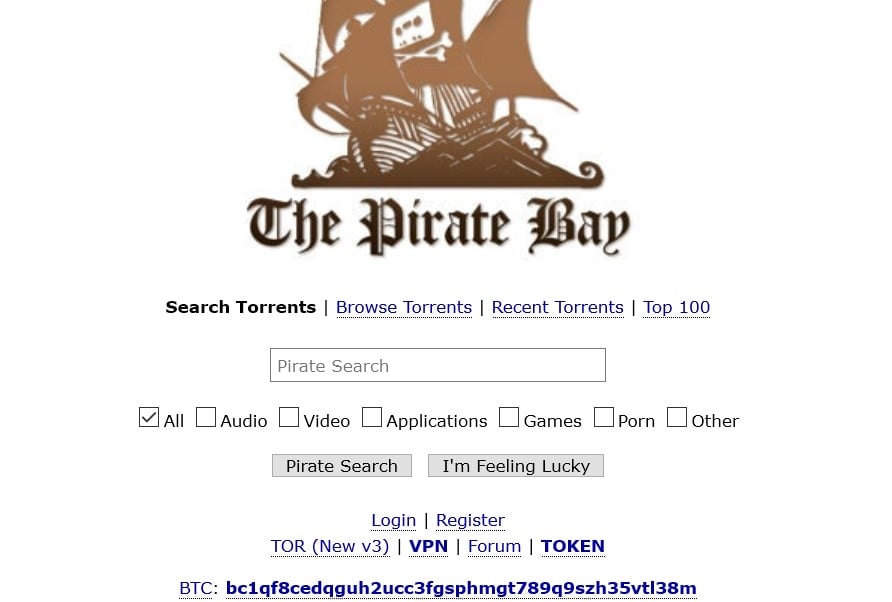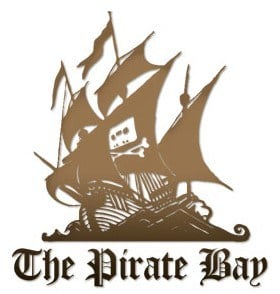[Most Recent Entries] [Calendar View]
Monday, August 9th, 2021
| Time | Event |
| 8:41a | The Pirate Bay Switches to a Brand New V3 Onion Domain
Since then the site has burnt through more than a dozen domains, trying to evade seizures or other legal threats. The torrent site eventually returned to the .org domain which remains the official home today. While there are hundreds of Pirate Bay proxies online, none of these are operated by the TPB-team. Pirate Bay’s .OnionThe only official backup address for The Pirate Bay is its .onion domain. This is accessible over the Tor network, which is often referred to as the ‘dark web’. The Pirate Bay has had an onion domain for years but in recent weeks, many visitors have started to receive warnings. The Pirate Bay has been using an old v2 .onion domain which is less secure. The latest version of the Tor browser started warning visitors to these domains last month and later this year they will stop resolving in the stable release of the official Tor client. The switchover to the more secure v3 .onion domains has been in the works since 2015. The Pirate Bay is relatively late to the party, but it eventually made the change a few days ago. “With the tor project V2 Onion Services Deprecation many visitors are getting warnings visiting the Pirate Bay v2 onion address,” TPB admin Moe notes, encouraging visitors to update their bookmarks for the new v3 address. Bookmark RequiredA bookmark will come in handy indeed, as v3 onion addresses are expanded to 56 characters which makes them pretty hard to memorize. The first nine letters of TPB’s new onion domain are not really a challenge, but what follows is pretty random.
 Accessibility is KeySome people may find it odd that The Pirate Bay didn’t support the more secure v3 earlier. However, there wasn’t much urgency for the torrent site, which doesn’t really use the .onion domain for its cryptographic advantages. The main advantage for The Pirate Bay is that a .onion domain can’t be seized or blocked by outsiders unless the site’s infrastructure is compromised. This makes it possible to easily circumvent site blocking measures. There is not really much of a privacy advantage for people who use Pirate Bay’s .onion domain to download torrents. While ISPs may not be able to see what pages they visit, their residential IP address is still publicly broadcasted when files are downloading through a torrent client. From: TF, for the latest news on copyright battles, piracy and more. |
| 6:12p | Sci-Hub Pledges Open Source & AI Alongside Crypto Donation Drive
While its unlicensed counterparts in movie, TV show and music distribution are vilified for undermining creators, Sci-Hub has received broad praise for helping to spread knowledge for the furtherment of science and education, particularly to those who can least afford it. But that praise is not universal. Companies in the publishing sector, whose papers are most likely to appear on Sci-Hub, describe the platform using the same terms as those lobbed at regular ‘pirate’ sites, claiming that “theft is theft”, regardless of the Robin Hood-style romance that has flourished alongside the scientific library. But despite many lawsuits and blocking efforts around the world financed by massive corporations, Sci-Hub defies the odds by staying afloat. And at the same time as authorities warn people away from the platform, it continues to prove its relevance, even in papers published by those who would like to see it shuttered for good. Sci-Hub cannot avoid the realities of the financial system, however, and has now launched a donation drive to stay afloat and enhance development in the months and years to come. Sci-Hub Calls For Help to Ensure Free Knowledge For AllAccording to the latest stats made available by founder Alexandra Elbakyan, Sci-Hub has a database of more than 85 million research papers that is used by 500,000 people every day including scientists and students, medical practitioners and journalists. However, Sci-Hub cannot exist on fresh air and as a result, relies on donations to operate. A new campaign launched by Elbakyan on Saturday hopes to encourage people to contribute to the site’s future, promising “dramatic improvements” over the next few years in return. In addition to offering enhanced search features and a mobile app, Sci-Hub is pledging developments that include the open sourcing of the project. Also of interest is the pledge to introduce an artificial intelligence component that should make better use of the masses of knowledge hosted by Sci-Hub. “Sci-Hub engine will [be] powered by artificial intelligence. Neural Networks will read scientific texts, extract ideas and make inferences and discover new hypotheses,” Elbakyan reveals. The overall goal of the next few years is to boost content availability too, expanding from hosting “the majority of research articles” available today to include “any scientific document ever published.” Addressing the Major Challenge – LegalityWhile Sci-Hub has made dramatic progress over the past decade, there are entities out there that want to restrict both its growth and success. Back in February, for example, publishers Elsevier and Springer Nature obtained a new ISP blocking order in the UK, aiming to make it more difficult for users to access the platform. Indeed, a day before the Sci-Hub donation drive began, ISP TalkTalk began reporting that a new court order had gone into effect targeting the scihub.unblockit.uno domain, which facilitates access to Sci-Hub when direct access isn’t possible. Quite how Sci-Hub plans to resist legal challenges is not clear but according to Elbakyan, any donations to the project will help her to combat mechanisms put in place to prevent the free sharing of information. “Access to information and knowledge is a basic human right. Sci-Hub will fight those laws that make free exchange of information impossible. The project will eventually be recognized as legal,” she predicts. Only Crypto Donations AllowedGiven the nature of the project, Sci-Hub is only accepting donations in cryptocurrencies such as Bitcoin. This is due to Elbakyan’s negative experiences with PayPal. In the past, thousands of dollars were received in donations but following complaints from publishers, PayPal shuttered that account and others. “It turned out that Elsevier had complained to PayPal about Sci-Hub so they froze the account. Later I tried registering another PayPal account, and use it carefully, but after some time it also got frozen. I have several frozen PayPal accounts by now,” Elbakyan says. “The most important feature of cryptocurrencies is that unlike PayPal, or bank accounts they cannot be frozen by a third party because your project is illegal or because Elsevier complained about it. They are safe currency. That’s why today Sci-Hub collects donations primarily in crypto.” As things stand, Sci-Hub seems to favor Bitcoin (BTC) but can accept donations in Bitcoin Cash, Litecoin, Ripple, Monero and Ethereum, among others. The project’s donation page containing all of the details can be found here From: TF, for the latest news on copyright battles, piracy and more. |
| << Previous Day |
2021/08/09 [Calendar] |
Next Day >> |
 When The Pirate Bay first came online during the summer of 2003, its main point of access was thepiratebay.org.
When The Pirate Bay first came online during the summer of 2003, its main point of access was thepiratebay.org.